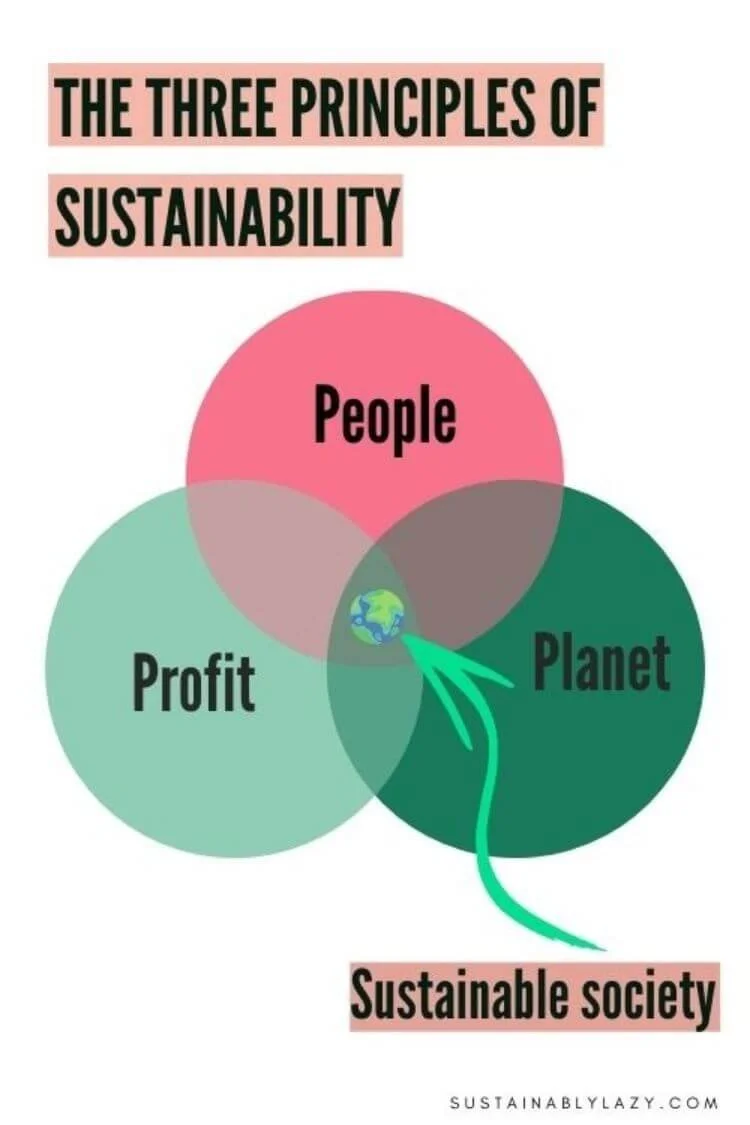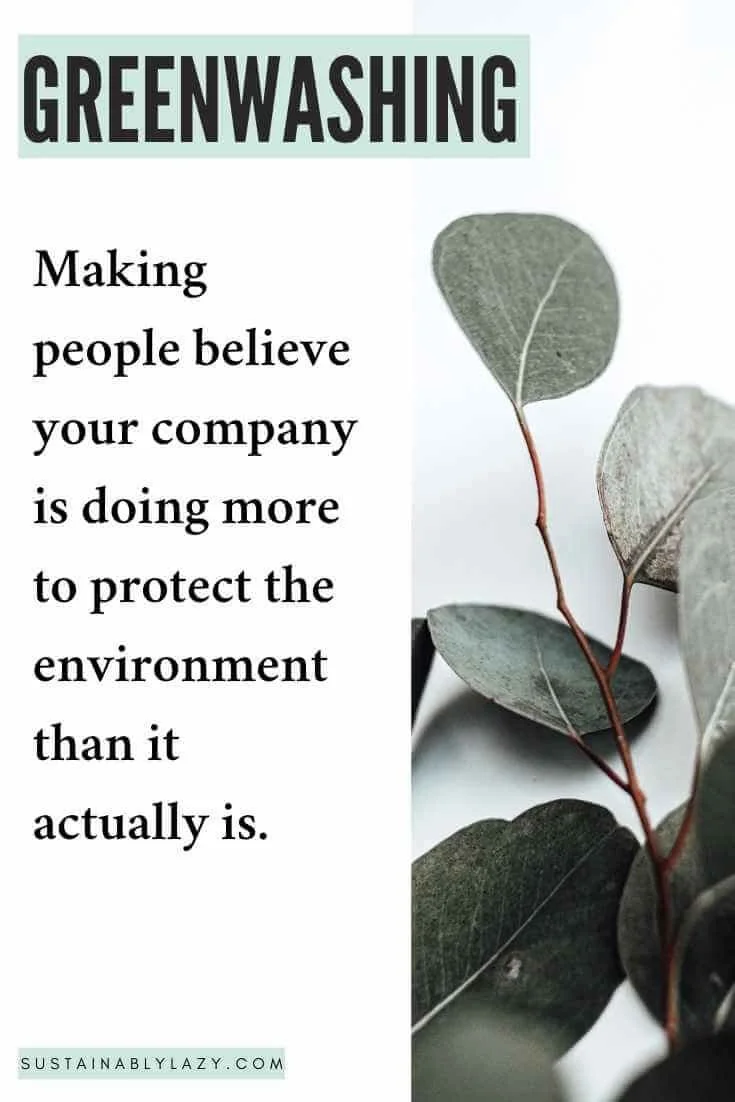Starting a sustainable lifestyle: beginner info.
So you want to know how to start a sustainable lifestyle?
It’s great to have you here!
On this page, you’ll find a quick summary of everything you need to know before you get started.
This post is more about learning than acting. It will help you get into the right mindset so you don’t waste your money or get tricked by brands that are greenwashing.
If you already have some knowledge and would like to skip ahead to the action - check out 3 Ways To Begin Your Sustainable Lifestyle.
Don’t worry if you feel a bit lost - we all feel that way at the start.
Remember that sustainable living is a process rather than an aesthetic so just go at your own pace.
Join our friendly community on Instagram and if you’re feeling confident, why not start sharing your own sustainable journey and inspire more people to give it a go?
I’m quickly going to share the basics that everyone should know with you:
What does sustainable mean?
What is the zero waste movement?
Three actions to avoid
What is a “natural” product?
What is a toxin?
What is a non-toxic lifestyle?
What is greenwashing?
What is environmental justice?
What is the purpose of Sustainably Lazy?
What Does Sustainable Mean?
The most common definition of sustainability is to meet the needs of the present without compromising the abilities of future generations to meet their own needs.
Basically, we all need to use fewer natural resources so that there are some left for our grandkids’ generation.
At the rate we’re going, they’ll be learning about orangutans and tigers in history books. A scary thought, huh?
The three elements of sustainability are:
People
Planet
Profit
On a sustainable planet, all people have their basic needs met and are paid fair wages (rather than greedy billionaires pocketing it all!), and resources are used in a way that is beneficial to the environment.
What Is The Zero Waste Movement?
The zero waste movement encourages a mindset that revolves around 5Rs.
Refuse
Reduce
Reuse
Repair
Rot (compost)
Recycle
Zero waste isn’t just about what you throw away, it’s about changing your habits to avoid wasting resources in the first place.
Zero or low-waste lifestyles focus on not buying unnecessary stuff. By shopping less and reusing what already exists, you naturally end up with less rubbish in the bin.
Although it seems like a movement of individuals the ultimate goal is to create a more sustainable society. Collectively, we can make real positive change.
And just to be clear, no one is actually zero waste. We use the term because collectively people understand what it means and it’s commonly searched for on the internet or social media.
Some people prefer to use the term “low-waste lifestyle” because it is less overwhelming.
Read next: 75 ways to be more sustainable on a budget
Three actions to avoid
Don’t throw away all your plastic
Don’t switch one resource for another, such as single-use plastic to single-use paper.
Don’t try and do too much at once or you’ll burn yourself out.
What is a natural product?
You will often hear me refer to products as ‘natural.’ This term is unregulated so it’s important you understand what people mean when they say it.
When I say natural, it’s usually short for “naturally derived.” I’m referring to ingredients and materials that are sourced from plants as opposed to petrochemicals which come from fossil fuels (learn why this is a problem here).
If a product is described as natural, it also means it is free from synthetic toxins and additives that are harmful to people or the environment. Sometimes people say “non-toxic” instead.
Often, plant-derived ingredients go through a chemical process to get to the final product, like a bar of soap, yet they are still considered “natural.”
Natural isn’t always safe, and synthetic isn’t always harmful. But harvesting crude oil, which is what plastic is made from, is devastating to the environment. Think oil spills, toxic pollution and greenhouse gases. No thank you!
And who knows if the toxic chemicals that are used to create synthetic ingredients are handled safely when supply chains are so complex and secretive.
Using the word “natural” is obviously not the most scientific way to describe a product, but I use it because it’s easy to understand (it’s also a keyword for like-minded people searching on in the internet).
Unfortunately, not every brand that calls its product natural is telling the truth.
You should always look for third-party certificates, like COSMOS Organic, to back up any green claims.
What is a toxin?
Any substance that negatively affects people, animals, plants, or other organisms is a toxin. When swallowed or absorbed through the skin, many toxins are poisonous compounds that are harmful.
Some poisons are organic substances that can be present in food and water. Other toxins are made of synthetic compounds created for industrial usage.
What is a non-toxic lifestyle?
Living a non-toxic lifestyle, also referred to as a chemical-free lifestyle…
(It’s best to phrase it this way colloquially as it’s not scientifically accurate and someone will always say “everything is a chemical” because, well, it is)
…means limiting the number of toxins in your home.
According to the EU, the typical human is exposed to thousands of synthetic chemicals each day. These enter your home through the products you buy, some common examples are in toiletries, cosmetics, food, and cleaning supplies.
This statistic could be higher in places that have fewer banned chemicals than the EU.
Toxins have been linked to a variety of chronic health conditions and 8% of deaths can be attributed to chemicals.
What is greenwashing?
“Greenwashing is an attempt to make people believe that your company is doing more to protect the environment than it really is” - Cambridge dictionary
Greenwashing is a marketing scam.
An example is when a company advertises one eco-friendly line of products without acknowledging the environmental damage and pollution they are causing in the rest of their business.
Greenwashing is ethically and morally wrong because the whole purpose is to manipulate customers into buying their products under false pretences.
What is environmental justice?
In the first two weeks of January, the average British person will emit as much carbon as people living in seven African countries do in an entire year (Oxfam, 2020).
Even though they are barely creating any greenhouse gases, African people are feeling the effects of climate change much worse and have been for a long time. They are dying from extreme weather, famine, pollution and exploitation.
Environmental justice is the merging of environmentalism and social justice. It’s the awareness that you can’t save the planet without including everyone.
For example, buying dairy-free chocolate might produce less carbon, but if the cocoa isn’t Fairtrade then the chances are high that children were working on the cocoa farm in Africa.
There is some learning involved in environmental justice and it requires you to step out of your comfort zone.
It helps to take it one step at a time - each time you make a change in your life, consider how it affects people as well as the planet.
Environmental justice is ensuring your actions and values are not just making a better world for white people.
It’s not sustainable if we leave people out and it’s not ethical if our eco-friendly choices are harmful to others.
The best way to get started is to follow Black and Brown climate change educators and activists on social media and listen to what they say.
What is the purpose of Sustainably Lazy?
Sustainably Lazy believes capitalism and oppressive systems are the cause of climate change, poor health, and the illegal levels of pollution that are impacting humans and ecosystems. We are taught from a young age that our worth is linked to our productivity and forced to conform to an ableist society or fall through the cracks.
I started reducing toxins in my mid-twenties (for health reasons) and got a career in natural health, which I left in my thirties to prioritise slow motherhood and a conscious lifestyle.
I created this website to help others live in a way that complements their values. Whether it’s natural living or zero waste, I want to help you make informed decisions on the products you bring into your home.
I believe sustainable, non-toxic living should be accessible to everyone. We all have different circumstances, privileges, and values so I think it’s important for people to focus on what they can do rather than what doesn’t work for their family.
Natural, eco-conscious living is going to look different for everyone and that is okay. We are all individuals with different opinions and beliefs, there is no need to conform to a movement.
Here are some more articles you might find useful:



